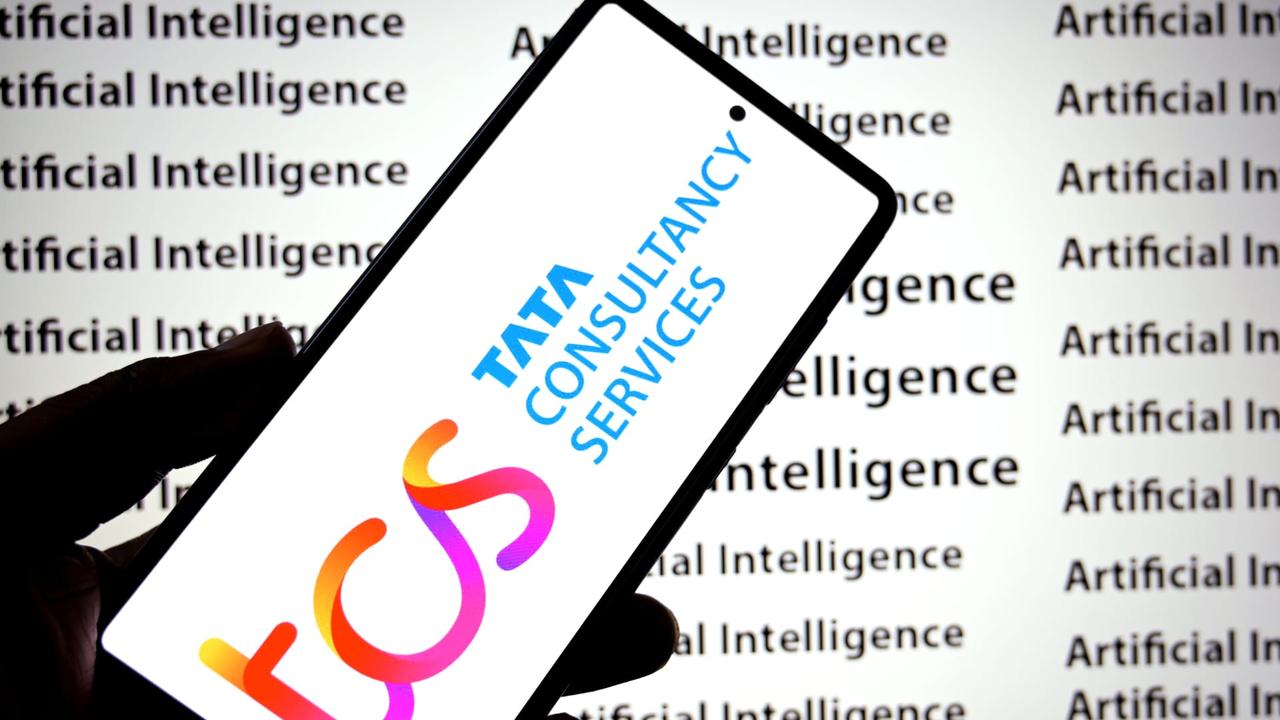AI to Create New Jobs While Impacting Repetitive Tasks, Says Deloitte South Asia CEO
3 Sources
3 Sources
[1]
AI will spur new jobs, roles but may impact repetitive, commoditised tasks: Deloitte South Asia CEO
The advent of artificial intelligence (AI) will most certainly lead to the creation of new roles and jobs in the economy, although some of the current functions involving "repetitive" and "commoditised" tasks may be impacted, according to Deloitte South Asia CEO Romal Shetty. In fact, more new jobs will be created than in the past given the transformative impact of AI, Shetty said and emphasised that human intervention and interface would still be key to optimising the full benefits of emerging technologies. Shetty said that AI could affect jobs that are repetitive and commoditised but will yield more opportunities for companies and workers. "Where something is repetitive and commoditised, those jobs could be lost but will there be new jobs created, new roles created? Hundred per cent and absolutely," he said in an interaction with PTI editors at the agency's headquarters. Shetty said he sees AI as a huge opportunity rather than an absolute challenge. Also read: How can AI help boost India's GDP by $500 billion by 2025? A case in point could be air traffic control operations for drones, amid the increasing use of unmanned aerial vehicles (UAVs) in different applications. "Also, with electric vehicles coming in, the tire sound is significant. So they're looking at chemical composition of the tire using generative AI to say if 18 months of R&D can be done in nine months now, and things like that. So there are different kinds of capabilities that are coming in with new things, with electric, with everything else," he said. On the new regulations that are coming up in the area of emerging technologies, data and digital, Shetty asserted that regulations are important but should not stifle innovation. "Data privacy will make it extremely difficult for certain sets of data to move out of the country, unless it is sovereign cloud or sovereign infrastructure. Most of these companies are global companies, so their systems are interconnected. So they will have to change their business model as well," he said, adding that regulations are important in ensuring fairness. Business models of companies too will have to evolve in keeping with the new regulations. "But we will have to be careful about regulations (not) stunting innovation and growth. We have to be careful about that but having said that regulatory is important because every country has its own sovereignty," he said. Also read: Leveraging AI: Technology is shaping the future of tax servicesSHARE Copy linkEmailFacebookTwitterTelegramLinkedInWhatsAppRedditPublished on September 23, 2024
[2]
AI will spur new jobs, roles but may impact repetitive, commoditised tasks: Deloitte South Asia CEO
The advent of artificial intelligence (AI) will most certainly lead to the creation of new roles and jobs in the economy, although some of the current functions involving "repetitive" and "commoditised" tasks may be impacted, according to Deloitte South Asia CEO Romal Shetty. In fact, more new jobs will be created than in the past given the transformative impact of AI, Shetty said and emphasised that human intervention and interface would still be key to optimising the full benefits of emerging technologies. Shetty said that AI could affect jobs that are repetitive and commoditised but will yield more opportunities for companies and workers. "...Where something is repetitive and commoditised, those jobs could be lost but will there be new jobs created, new roles created? Hundred per cent and absolutely," he said in an interaction with PTI editors at the agency's headquarters here. Shetty said he sees AI as a huge opportunity rather than an absolute challenge. A case in point could be air traffic control operations for drones, amid the increasing use of unmanned aerial vehicles (UAVs) in different applications. "Also, with electric vehicles coming in, the tire sound is significant. So they're looking at chemical composition of the tire using generative AI to say can 18 months of R&D be done in nine months now, and things like that. So there are different kinds of capabilities that are coming in with new things, with electric, with everything else," he said. On the new regulations that are coming up in the area of emerging technologies, data and digital, Shetty asserted that regulations are important but should not stifle innovation. "Data privacy will make it extremely difficult for certain sets of data to move out of the country, unless it is sovereign cloud or sovereign infrastructure. Most of these companies are global companies, so their systems are interconnected. So they will have to change their business model as well," he said, adding that regulations are important in ensuring fairness. Business models of companies too will have to evolve in keeping with the new regulations. "But we will have to be careful about regulations (not) stunting innovation and growth. We have to be careful about that but having said that regulatory is important because every country has its own sovereignty," he said.
[3]
AI will spur jobs but repetitive roles to be impacted: Deloitte top leader
Amid concerns over the impact of artificial intelligence (AI) in the job market, Deloitte South Asia CEO Romal Shetty said on Monday that the tool has the potential to create new jobs but some of the current functions involving repetitive tasks may be hit. "...Where something is repetitive and commoditised, those jobs could be lost but will there be new jobs created, new roles created? Hundred per cent and absolutely," he said. Click here to connect with us on WhatsApp More new jobs will be created than in the past given the transformative impact of AI, he assured, adding that human intervention and interface would still play a key role in maximising the benefits of the emerging technologies. ALSO READ: PM Modi urges global tech CEOs to be part of India's growth story Highlighting the areas where AI has the potential to create jobs, Shetty said that some cases include air traffic control operations for drones, and use of generative AI in electric vehicle related research and development. He said that these reflect that AI is an opportunity rather than an absolute challenge. He further added that while regulations are important, it shouldn't stifle innovation. Shetty also highlighted that regulations are important in ensuring fairness. More From This Section Govt steps up buffer stock sale to control onion prices after duty removal Fresh formal hirings increase in July by 2.5% to 1.05 million: EPFO data Slowdown in business activity pulls flash PMI to its lowest levels in 2024 Centre to integrate EPFO, e-Shram database to track workforce formalisation India on right track to become Viksit Bharat by 2047: FM Sitharaman Demand for AI talent to double by 2027 Business Standard had reported in August that the demand for AI talent is set to jump significantly. According to the 'Advancing India's AI Skills: Interventions and Programmes Needed' report released by Deloitte India and Nasscom, said that by the year 2027, the AI market is expected to grow at 25-35 per cent. The report said that the demand for AI professionals is expected to jump to 1,250,000 in 2027 from 600,000-650,000. More people enrolling in AI courses At present, AI integration is evident in customer service. As chatbots have the ability to converse with customers in multiple languages, some companies have replaced humans with chatbots. In July, Business Standard reported that there has been a 50 per cent jump in enrollment in online Artificial Intelligence (AI) and Machine Learning (ML) courses over the past 1 year, signalling growing interest among professionals and their desire to adapt to evolving industry trends. (With PTI inputs) Also Read Monsoon rains a fifth below normal so far, raising agricultural concerns Coal dependency, climate dilemma to hang over PM Modi in his third term Scorching heat may be blighting India's road to becoming a developed nation India expects FY25 growth of over 7%, says CEA V Anantha Nageswaran Don't bring the successful down, elevate the rest: Rajan on wealth tax
Share
Share
Copy Link
Deloitte South Asia CEO Romal Shetty discusses the impact of AI on the job market, highlighting the creation of new roles and the potential displacement of repetitive tasks. The discussion emphasizes the need for upskilling and adaptation in the evolving workplace.

AI's Dual Impact on Job Market
Artificial Intelligence (AI) is set to revolutionize the job market, creating new opportunities while potentially displacing certain roles, according to Romal Shetty, CEO of Deloitte South Asia. In recent statements, Shetty emphasized that while AI will spur the creation of new jobs and roles, it may also significantly impact repetitive and commoditized tasks
1
.Emergence of New Roles
Shetty highlighted the emergence of new job roles directly related to AI, such as prompt engineers and AI ethicists. These positions are becoming increasingly important as organizations integrate AI into their operations. The Deloitte CEO stressed that AI is not just creating technical roles but also enhancing existing positions across various sectors
2
.Impact on Repetitive Tasks
While AI promises new opportunities, it also poses challenges for jobs involving repetitive or easily automated tasks. Shetty noted that roles centered around commoditized or repetitive work are likely to be significantly impacted by AI advancements. This shift underscores the need for workforce adaptation and skill development
3
.Upskilling and Adaptation
In light of these changes, Shetty emphasized the critical need for upskilling and reskilling. He advised professionals to continuously update their skills to remain relevant in an AI-driven job market. The Deloitte CEO suggested that individuals should focus on developing skills that complement AI, rather than competing with it
1
.AI's Role in Workplace Efficiency
Shetty also discussed how AI is enhancing workplace efficiency. He noted that AI tools are being increasingly used to automate routine tasks, allowing employees to focus on more strategic and creative aspects of their work. This shift is expected to lead to higher productivity and innovation across industries
2
.Related Stories
Ethical Considerations and AI Governance
As AI becomes more prevalent, Shetty stressed the importance of ethical considerations and proper governance. He highlighted the need for organizations to develop robust AI policies and ensure responsible use of the technology. This focus on ethics is creating new roles and responsibilities within companies, further diversifying the job market
3
.Future Outlook
Looking ahead, Shetty expressed optimism about the overall impact of AI on the job market. While acknowledging the challenges, he emphasized that the creation of new roles and the enhancement of existing ones would likely outweigh the displacement of repetitive tasks. He encouraged both individuals and organizations to embrace AI as a tool for growth and innovation in the evolving workplace landscape
1
.References
Summarized by
Navi
[1]
[2]
[3]
Related Stories
Recent Highlights
1
ByteDance's Seedance 2.0 AI video generator triggers copyright infringement battle with Hollywood
Policy and Regulation

2
Demis Hassabis predicts AGI in 5-8 years, sees new golden era transforming medicine and science
Technology

3
Nvidia and Meta forge massive chip deal as computing power demands reshape AI infrastructure
Technology








